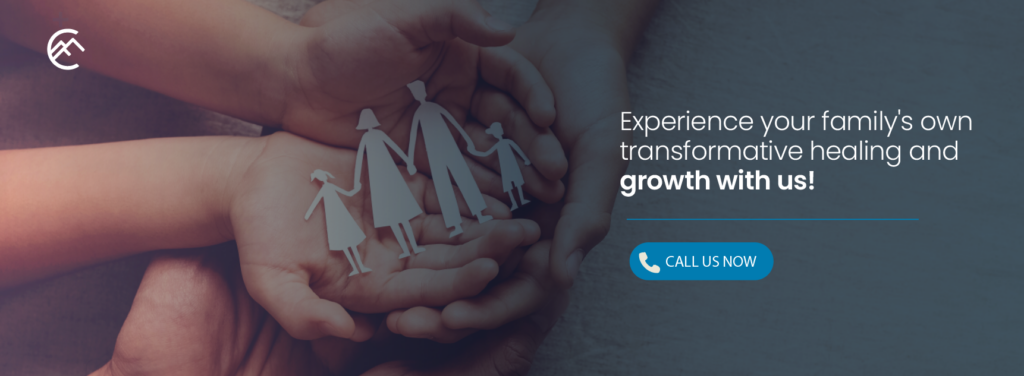Table of Contents

Cognitive-Behavioral Therapy (CBT) is one of the most widely used approaches for treating mental health disorders. It plays an important role in supporting teens during their mental health journey. CBT provides valuable insights about feelings and behavior.
CBT is used to treat many mental health problems such as depression, anxiety, eating disorders, PTSD, personality & mood disorders. It is guided by a licensed therapist to help teens break underlying negative thinking patterns, build positive coping skills and set goals. It follows a structured approach that may include handouts, worksheets, and problem-solving activities.
How Does CBT For Teens Work?
CBT psychotherapy focuses on teaching teens how their feelings and thoughts influence their behavior. It is tailored to meet their unique developmental needs. Practicing CBT takes commitment from your teenager and the desire to feel better.
CBT is usually a 12-week program consisting of 1 hour sessions. However this can vary depending on the nature and severity of your teens’ mental health disorder. CBT targets the root of mental health problems rather than just masking the symptoms.
During CBT sessions your teen will work with a licensed therapist to navigate underlying mental health problems and build skills for resilience. CBT is a structured approach that may require your teen to fill out worksheets, participate in activities or even do “homework”. Encouragement and positive support from loved ones outside of therapy sessions will make treatment outcomes more effective.
What Can It Help With?
CBT is used for a wide variety of mental health disorders. It can be tailored to support certain mental health problems such as trauma-focused CBT or CBT for teens vs adults. Some of the problems CBT can help include:
- Anxiety
- Depression
- PTSD
- Eating Disorders
- Personality Disorders
- Mood disorders such as bipolar
- OCD
- Substance abuse & co-occurring disorders
- Negative body image
- Low self-esteem
- Lack of motivation
What To Expect from CBT For Teens?
Teens can expect to learn positive coping skills, problem-solving skills, set goals and build higher levels of self-awareness. Some of the other tools teens can expect to learn during CBT include.
- Awareness of Distorted Thinking Patterns: Identifies cognitive biases such as projection and catastrophizing
- Problem-Solving: Can teach teens how to problem-solve by working through challenges and emotional difficulties
- Setting Goals: A large component of CBT is setting goals for treatment, building a plan to meet those goals and sticking to them.
- Mindfulness: CBT helps strengthen the brain-body connection by teaching teens how their thoughts impact how they feel. CBT helps rewire the brain with tools that can lead to better emotional health and well being.
- Family focused: CBT may involve repairing family dynamics in the home, and building a specific plan to support aftercare & transition.
Benefits of CBT For Teens
CBT is an evidence-based therapy with effective results in providing positive outcomes for teens. It can boost their self esteem, keep them emotionally regulated, and provide them with positive coping skills. Some of the benefits of CBT for teens include:
- Increase self-esteem
- Learn to set goals
- Face challenges head on
- Problem-solve
- Increase motivation
- Regulate emotions
- Increased self-awareness
- Promote mindfulness
- High success rate
- Long-term results
CBT For Teens FAQ
Parents may still have questions about how CBT can support their teens. Some of the most commonly asked questions around CBT for teens includes:
What can CBT treat?
CBT is used to treat several common mental health problems including, but not limited to, depression, anxiety, eating disorders, PTSD, mood disorders, and personality disorders. It can also support teens who may not be formally diagnosed with a mental health problem but simply need extra support in overcoming a variety of challenges such as bullying, grief, or dealing with instability in the home.
Does insurance cover CBT?
Most insurance CBT. However it’s important to double check with your provider.
Who is CBT not suitable for?
CBT may be less effective for severe mental health disorders such as complex trauma, treatment-resistant depression or borderline personality. Patients with learning disorders such as autism or ADHD may benefit from other types of therapy.
When to Seek Professional Help
If you identify warning signs of mental health problems in your teen, reach out for professional support to help find the best plan of treatment. At Clearfork Academy our team of compassionate, licensed therapists offers CBT to help teens develop coping skills, set goals and go onto build a successful adulthood. Reach out to our Admissions team to learn more.

Alumni Relations Manager
Mike grew up on a dairy farm in Parker County, Texas. At the age of 59, he went back to college and graduated 41 years after his first graduation from Weatherford College. God placed on his heart at that time the passion to begin to help others as they walked from addictions, alcoholism, and abuse of substances. He is a Licensed Chemical Dependency Counselor and in the past few years he has worn many hats, from intake and assessment, group counseling, individual and family counseling, intensive outpatient and now he is working with clients, therapist, and families on discharge planning and aftercare. He also coordinates our Alumni Outreach Program.





